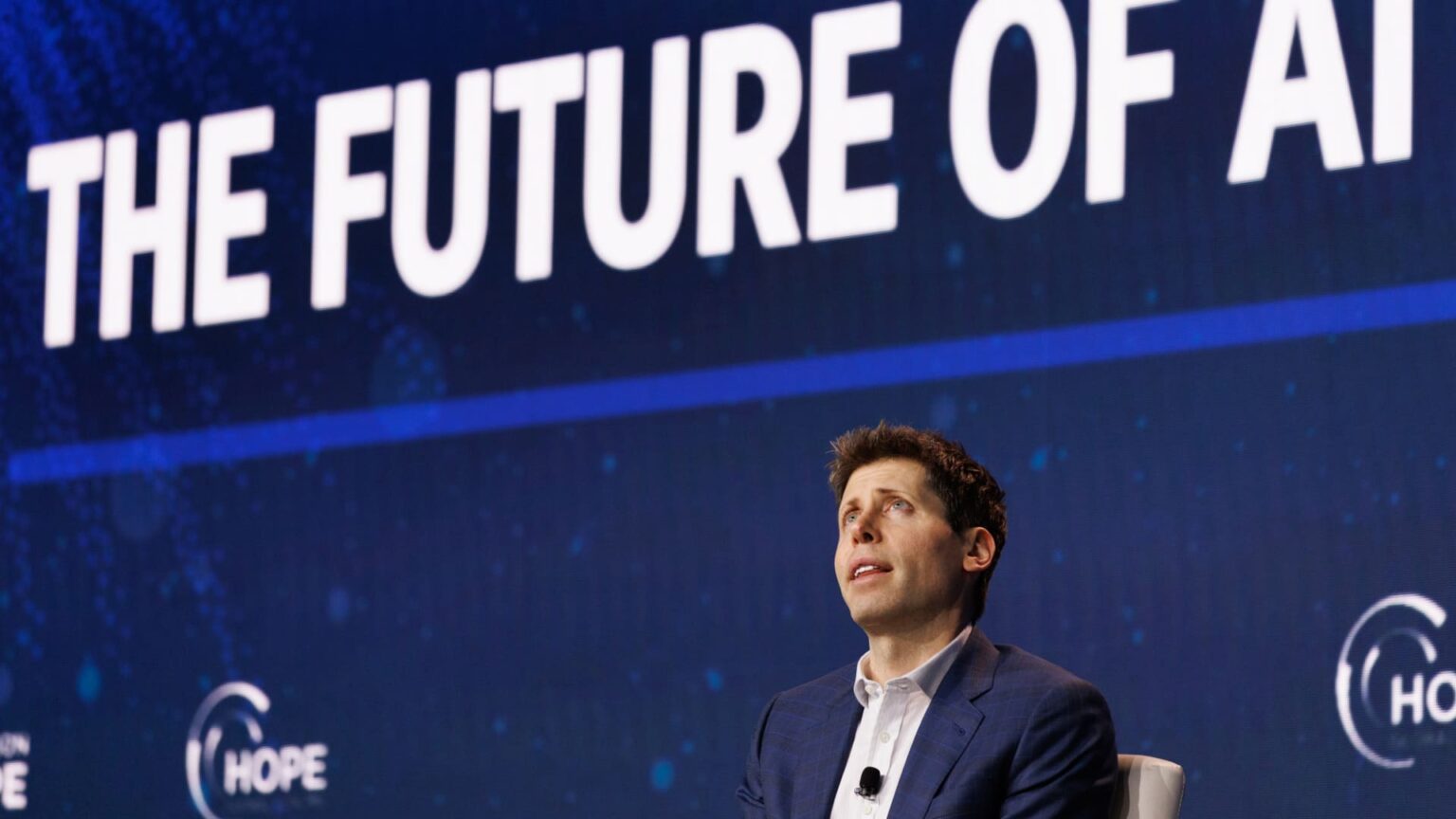
The artificial intelligence boom that Sam Altman helped ignite with ChatGPT in late 2022 is starting to make even him uneasy.
Startups with little more than a pitch deck are raising hundreds of millions. Valuations have become “insane.” Capital is chasing a “kernel of truth” with feverish speed.
The OpenAI CEO still believes the long-term societal upside of AI will outweigh the froth, and he’s ready to keep spending in pursuit of that goal.
“Are we in a phase where investors as a whole are overexcited about AI? My opinion is yes,” he said at a recent dinner with reporters. “Is AI the most important thing to happen in a very long time? My opinion is also yes.”
He repeated the word ‘bubble‘ three times in 15 seconds, then half-joked, “I’m sure someone’s gonna write some sensational headline about that. I wish you wouldn’t, but that’s fine.”
While Altman warned that valuations are now out of control, he’s ready to shell out on more infrastructure.
“You should expect OpenAI to spend trillions of dollars on datacenter construction in the not very distant future,” Altman said. “And you should expect a bunch of economists wringing their hands, saying, ‘This is so crazy, it’s so reckless,’ and we’ll just be like, ‘You know what? Let us do our thing.'”
OpenAI is already looking beyond Microsoft Azure’s cloud capacity, and is shopping around for more.
The company signed a deal with Google Cloud this spring and, according to Altman, OpenAI is “beyond the compute demand” of what any one hyperscaler can offer.
“You should expect us to take as much compute as we can,” he added. “Our bet is, our demand is going to keep growing, our training needs are going to keep going, and we will spend maybe more aggressively than any company who’s ever spent on anything ahead of progress, because we just have this very deep belief in what we’re seeing.”
It’s not just OpenAI. All the megacaps are trying to keep up.
In their most recent earnings, tech’s biggest names all raised capital expenditure guidance to keep pace with AI demand: Microsoft is now targeting $120 billion in full-year capital expenditures, Amazon is topping $100 billion, Alphabet raised its forecast to $85 billion, and Meta lifted the high end of its capex range to $72 billion.
Wedbush’s Dan Ives said Monday on CNBC’s “Closing Bell” that demand for AI infrastructure has grown 30% to 40% in the last months, calling the capex surge a validation moment for the sector.
Ives acknowledged “some froth” in parts of the market, but said the AI revolution with autonomous is only starting to play out and we are in the “second inning of a nine-inning game.”
“The actual impact over the medium and long term is actually being underestimated,” he said.
Citi’s Rob Rowe, speaking Monday on CNBC’s “Money Movers,” pushed back on comparisons between today’s AI boom and the dotcom bubble.
“Back then, you had a lot of over-leveraged situations. You didn’t have a lot of companies that had earnings,” Rowe said. “Here you’re talking about companies that have very solid earnings, very strong cash flow, and they’re funding a lot of this growth through that cash flow. So in many respects, it’s a little different than that.”
He added that the current wave of AI investment is being driven by structural shifts in the global economy, particularly the rapid growth of digital services, which now account for a large share of global exports. Also unlike the dotcom cycle of the late 90s, companies today are funding their infrastructure spending with strong cash flow rather than relying on debt.
Still, concerns about overheating have been mounting.
Alibaba co-founder Joe Tsai pointed to worrying signs in the AI sector well before the hyperscalers raised their annual capex guidance during the latest earnings prints.
In March, he warned of a brewing AI bubble in the U.S.
Speaking at HSBC’s Global Investment Summit in Hong Kong, Tsai said he was astounded by the scale of datacenter spending under discussion. Tsai questioned whether hundreds of billions in spending is necessary, and flagged concern about companies starting to build datacenters “on spec,” without clear demand.
Altman, for his part, sees these cycles as part of the natural rhythm of technological progress.
The dotcom crash wiped out scores of companies, but still gave rise to the modern internet. He expects AI to follow a similar path: a few high-profile wipeouts, followed by a lasting transformation.
“I do think some investors are likely to get very burnt here, and that sucks. And I don’t want to minimize that,” he said. “But on the whole, it is my belief that… the value created by AI for society will be tremendous.”
WATCH: OpenAI staffer reportedly to sell $6 billion in stock to SoftBank and other investors
https://www.cnbc.com/2025/08/18/altman-ai-bubble-openai.html


